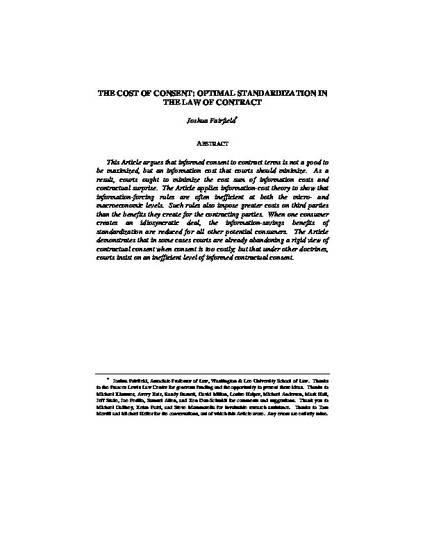
This article argues that informed consent to contract terms is not a good to be maximized, but is rather an information cost that courts should minimize. The goal of mass-market contract law ought to be to keep costs low by encouraging contract standardization. The article applies information cost theory to show that information-forcing rules are often inefficient at both the micro- and macroeconomic levels. Such rules also impose greater costs on third parties than the benefits they create for the contracting parties. When one consumer creates an idiosyncratic deal, the information-savings benefits of standardization are reduced for all other potential consumers. The article demonstrates that in some cases courts are already abandoning a rigid view of contractual consent where consent is too costly; but that under other doctrines courts insist on an inefficient level of informed contractual consent.

© 2009 EMORY LAW JOURNAL. Posted with permission from the copyright owner.